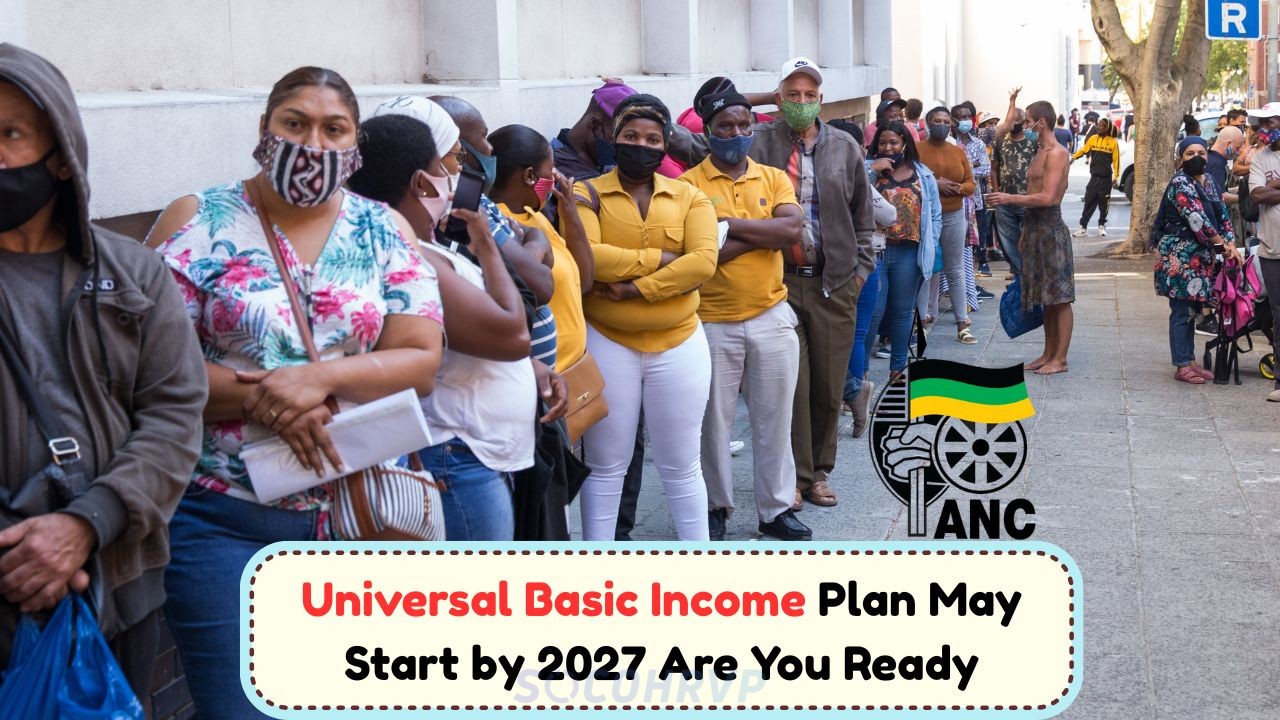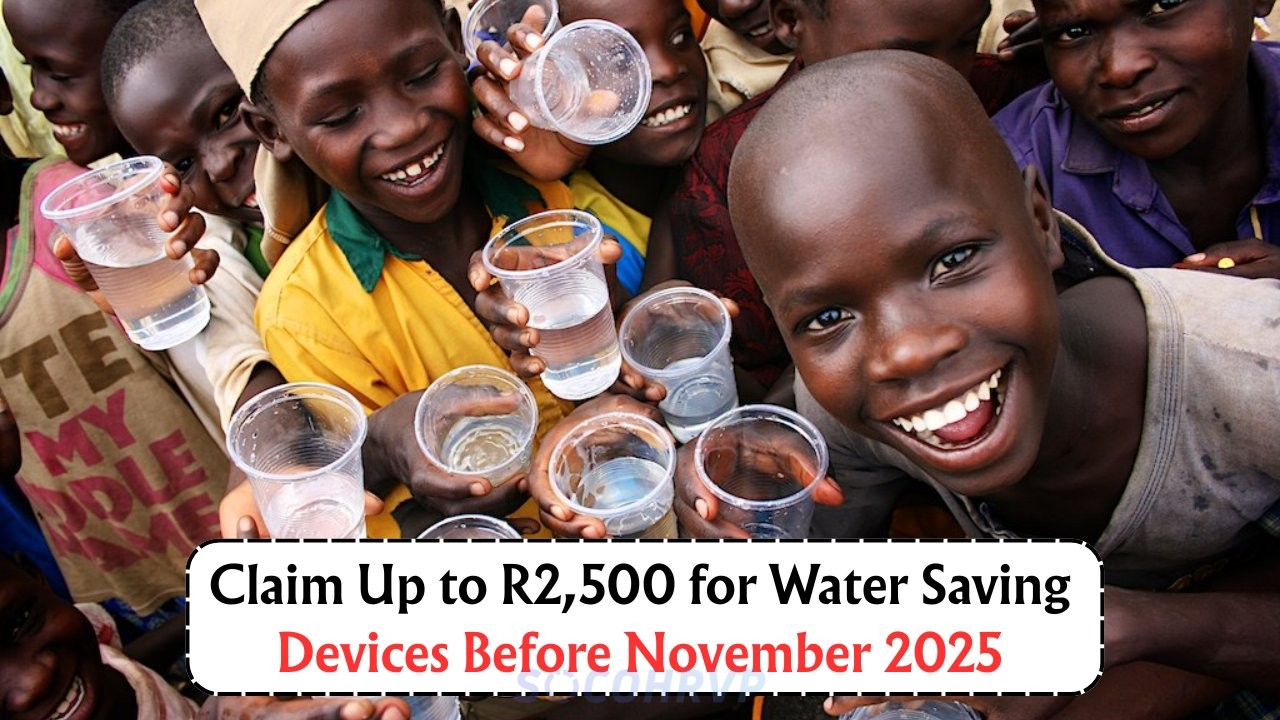ANC’s Monthly Basic Income Plans: Recently, the African National Congress’s (ANC) proposal for a monthly basic income has sparked intense debate across South Africa. Initially set for a 2027 launch, there is now speculation that this initiative may be implemented much sooner. As the country grapples with economic challenges exacerbated by the pandemic, the need for social safety nets has become increasingly urgent. This potential acceleration of the basic income plan could significantly impact millions of South Africans, providing financial relief and stimulating local economies. The proposal aims to address poverty and unemployment, issues that have long plagued the nation. With the ANC’s leadership discussing the feasibility of an earlier rollout, many citizens are hopeful for a quicker implementation, hoping it will bring much-needed stability and growth.
Understanding the Basic Income Proposal in South Africa
The idea of a basic income is not new in South Africa, but the ANC’s commitment to this financial support plan has drawn considerable attention. The proposal involves providing a regular, unconditional monetary payment to every adult citizen. The goal is to reduce poverty and inequality, offering a safety net to those who are struggling. The concept has gained traction globally, with several countries exploring similar initiatives. In South Africa, the basic income could play a crucial role in bridging the economic divide and ensuring that even the most vulnerable have access to basic needs.
- Provide financial stability to the unemployed and underemployed.
- Stimulate local economies through increased consumer spending.
- Reduce poverty levels significantly over time.
- Address economic disparities and promote social equality.
- Support individuals in pursuing education and vocational training.
- Potentially reduce crime rates linked to economic desperation.
- Encourage entrepreneurial activities by providing a financial cushion.
Why the ANC Might Implement Basic Income Sooner
The ANC’s discussions about an earlier implementation of the basic income plan are influenced by several factors. First, the COVID-19 pandemic has exacerbated economic inequalities, highlighting the urgent need for robust social support systems. Additionally, political pressure from within and outside the party has pushed leaders to act swiftly. The economic benefits of a basic income, such as increased consumer spending and reduced poverty, are attractive incentives for the government to expedite the rollout. Furthermore, as South Africa prepares for upcoming elections, the ANC might see this initiative as a strategic move to garner public support.
| Factor | Impact |
|---|---|
| Pandemic Recovery | Accelerates need for economic support |
| Political Pressure | Increases urgency for action |
| Economic Benefits | Boosts consumer spending |
| Upcoming Elections | Potential to gain voter support |
| Social Equity | Addresses inequality |
| Global Trends | Influence from international examples |
| Public Demand | High expectation for quick action |
| Party Strategy | Aligns with political goals |
Challenges Facing the ANC’s Basic Income Initiative
Despite the optimism surrounding the basic income proposal, several challenges could impede its implementation. One of the primary concerns is the financial sustainability of such a program. Funding a nationwide basic income would require significant resources, and the government must ensure that the initiative does not lead to increased national debt or higher taxes. Another challenge is the logistical aspect of distributing payments efficiently to all eligible citizens. Additionally, there is the risk of inflation, which could diminish the purchasing power of the basic income over time. Finally, political opposition and debates over eligibility criteria could further delay the program.
 Could South Africa's Private Solar Surge to 6,200MW in August 2025 End Loadshedding for Good?
Could South Africa's Private Solar Surge to 6,200MW in August 2025 End Loadshedding for Good?
- Financial sustainability and resource allocation
- Efficient payment distribution systems
- Inflation and its impact on purchasing power
- Political opposition and eligibility debates
- Long-term economic implications and adjustments
- Potential dependency on government support
- Balancing fiscal policy with social welfare
Potential Economic Impact of Implementing Basic Income Early
The early implementation of the basic income could have profound economic impacts on South Africa. In the short term, it would likely stimulate the economy by increasing consumer spending. This boost in demand could lead to job creation and support local businesses, fostering a more vibrant economic environment. In the long term, a basic income could reduce poverty levels and improve the overall quality of life for many South Africans, contributing to social stability and cohesion. However, careful management and continuous evaluation would be necessary to ensure the program’s success and sustainability.
- Short-term Economic Boost:
- Increased consumer spending
- Job creation opportunities
- Support for local businesses
- Long-term Benefits:
- Reduction in poverty levels
- Improved quality of life
- Greater social stability
Global Perspectives on Basic Income Initiatives
Globally, basic income initiatives are gaining traction as governments look for innovative solutions to address economic inequality and social welfare. Countries like Finland and Canada have conducted pilot projects to test the feasibility and impact of providing a basic income. These initiatives have shown promising results, with participants reporting improved mental health, financial stability, and increased opportunities for personal development. South Africa’s pursuit of a basic income aligns with these global trends, positioning the country as a leader in social welfare innovation if successfully implemented.
 Act Now: R2,500 Water-Saving Device Rebate Available Until Nov 2025 to Combat Water Crisis
Act Now: R2,500 Water-Saving Device Rebate Available Until Nov 2025 to Combat Water Crisis
- Finland’s successful pilot projects
- Canada’s basic income initiatives and outcomes
- Lessons from international experiences
- Potential for South Africa to lead in innovation
- Comparisons with other developing countries
- Global support and collaboration opportunities
Table: Global Basic Income Initiatives
| Country | Initiative | Outcome |
|---|---|---|
| Finland | Pilot Project | Positive social impacts |
| Canada | Basic Income Program | Improved financial stability |
| India | Universal Basic Income Proposal | Under consideration |
| USA | State-Level Trials | Mixed results |
| Brazil | Basic Income Law | Gradual implementation |
Conclusion on South Africa’s Basic Income Future
As the ANC considers the potential for an earlier rollout of the monthly basic income, South Africa stands at a crossroads of social and economic transformation. The initiative represents a significant step towards addressing long-standing issues of poverty and inequality, offering hope to millions of citizens. While challenges remain, the benefits of a well-implemented basic income program could far outweigh the obstacles. The country’s commitment to exploring this path reflects a broader global movement towards innovative social policies, and South Africa’s success could inspire similar efforts worldwide.
FAQs on ANC’s Basic Income Plan
- What is the ANC’s basic income proposal?
It is a plan to provide a regular, unconditional financial payment to all adult South Africans to reduce poverty and inequality. - Why might the ANC implement it sooner?
The pandemic’s impact, political pressures, and economic benefits are driving discussions of an earlier rollout. - What challenges does the plan face?
Financial sustainability, logistical distribution, inflation risks, and political opposition are key challenges. - How could it impact the economy?
It could boost consumer spending, create jobs, and reduce poverty, but requires careful management. - Are there global examples of basic income?
Yes, countries like Finland and Canada have conducted successful pilot projects.






